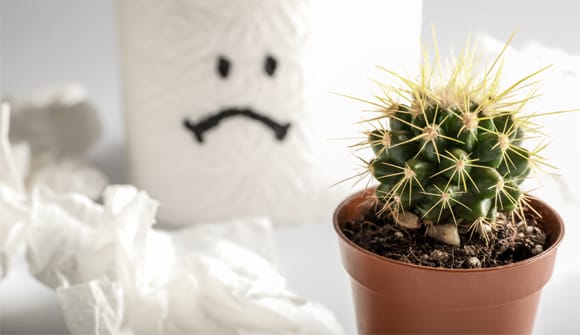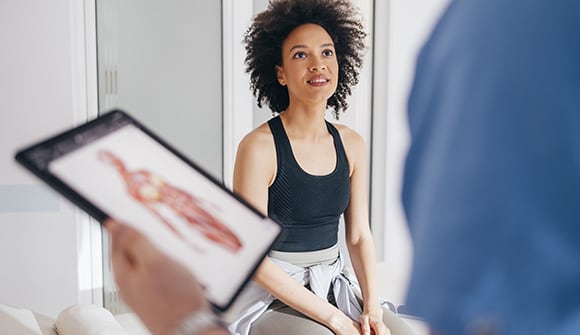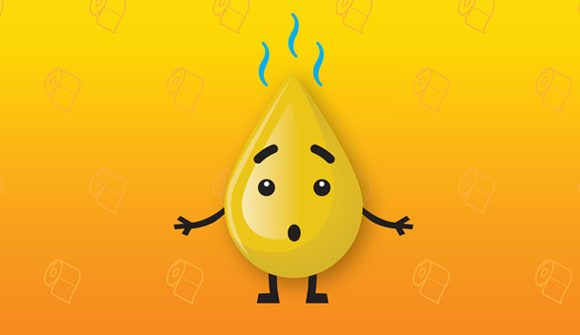Do I have hemorrhoids?
This common condition can be a real pain.
Article Author: Johnny Woodhouse
Article Date:

Hemorrhoids happen. Whether you're a pregnant woman or a middle-aged man, hemorrhoids are an equal-opportunity offender. Chances are you have them, but you might not know it. If you’ve ever felt hemorrhoids, you know they can be a real pain in the you-know-what.
According to the National Institute of Diabetes and Digestive and Kidney Diseases, around one in 20 Americans may experience symptoms of hemorrhoids, while others may not feel a thing. The risk of developing them increases with age as people become less active.
Hemorrhoids are defined as enlarged vascular tissue found in the lower rectum and anus, the opening at the end of the large intestine through which stools leave the body.
“They’re basically dilated veins everyone has and are a normal part of the body,” said Michael Waters, MD, a family physician with Baptist Primary Care. “But when they’re swollen, they can cause pain, itching and bleeding.”
The two types of hemorrhoids
Hemorrhoids can be internal or external.
Dr. Waters explained an internal hemorrhoid usually won't cause pain unless it swells and bulges outward from the anus. This occurs when it engorges with blood in a weakened vein wall. While mostly painless, internal hemorrhoids can cause varying amounts of rectal bleeding and blood in the stool.
But bloody bowel movements aren’t always due to hemorrhoids, and if you experience this you should make an appointment to see your primary care physician to rule out more serious medical conditions.
External hemorrhoids, which protrude from the anus and appear as red lumps, tend to be more painful, especially when sitting or during a bowel movement.
Common causes
Hemorrhoids are often the result of a sudden increase in pressure in the blood vessels around the rectum, either from too much straining while going to the bathroom or from being constipated.
“Some people may have a family history of hemorrhoids, but your likelihood of getting them mostly comes down to what you're doing all day,” Dr. Waters said. “For instance, people who lift heavy weights or ride bicycles a lot can develop hemorrhoids. Having a sedentary lifestyle can also put a person at a higher risk for developing them.”
Healing hemorrhoids
Luckily, most people don’t need surgery to deal with their hemorrhoids. In most cases, they can be treated with over-the-counter creams or medicated pads.
“We always try a conservative approach first to relieve pain and discomfort,” said Justin Rose, MD, a surgeon with North Florida Surgeons who sees patients at Baptist Beaches Hemorrhoid Clinic. “When conservative measures don’t work, we have noninvasive options, such as banding, which can be done here at our clinic.”
It’s important to try not to delay going to the bathroom, because stools sitting in the colon can dry and harden, making them harder to pass. Staying regular is a sign of good health and a healthy digestive system.
You can achieve this by:
- Eating more fiber to help prevent constipation.
- Exercising at least 30 minutes a day to help stimulate the bowels.
- Drinking plenty of liquids to help stools stay soft.
“Eating a healthy diet, staying active and drinking plenty of water all help reduce the chances of getting hemorrhoids,” Dr. Waters said.
Are you having hemorrhoid symptoms?
If you’re experiencing constipation more than three times a week, or notice blood in your stool, make an appointment with a Baptist Primary Care physician near you by calling 904.202.4YOU (4968) or filling out the appointment request form. If you're experiencing hemorrhoid symptoms, make an appointment at Baptist Beaches Hemorrhoid Clinic by calling 904.202.2019.



